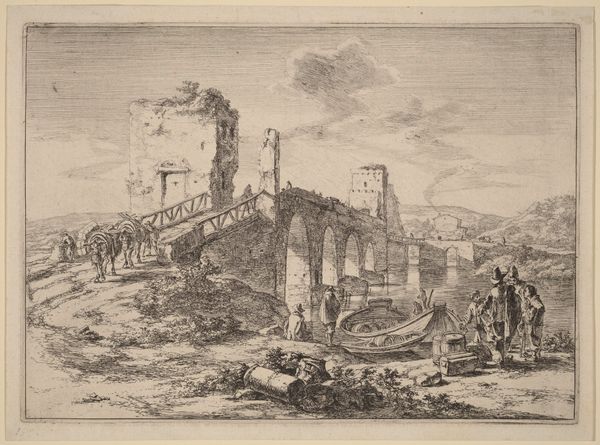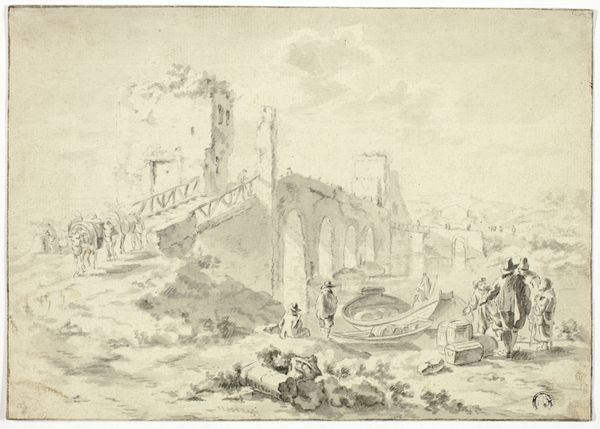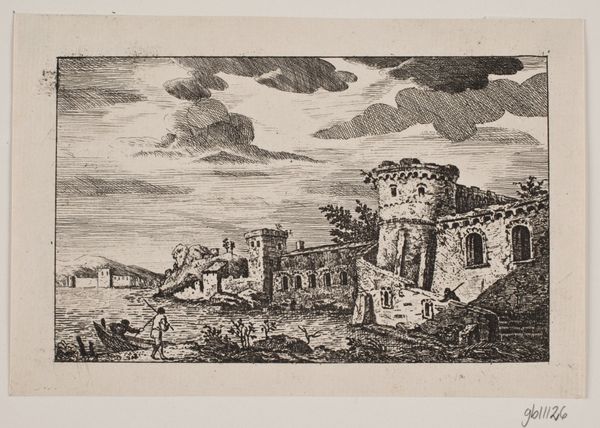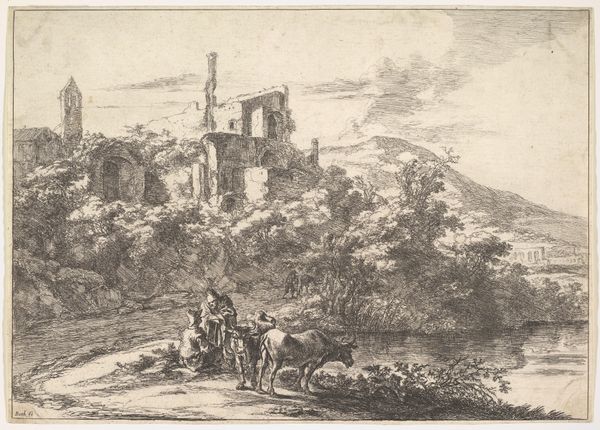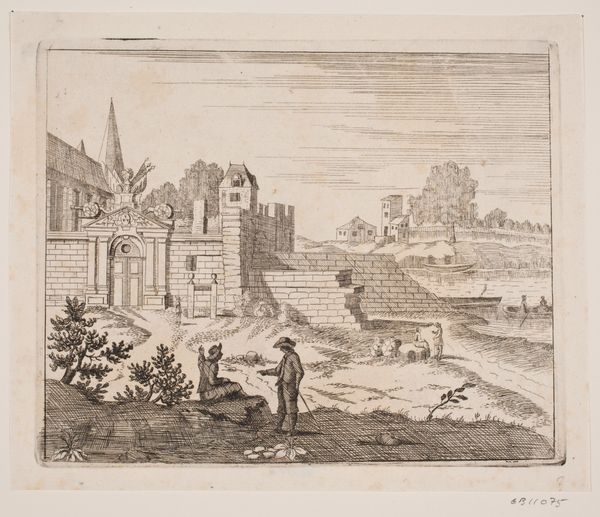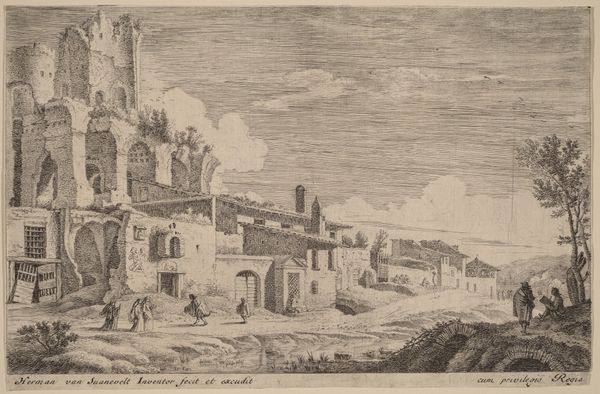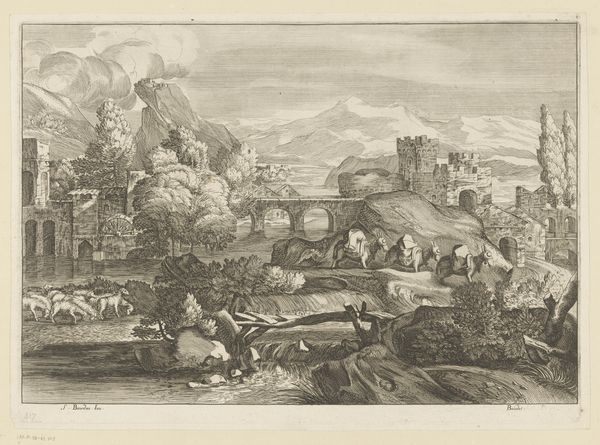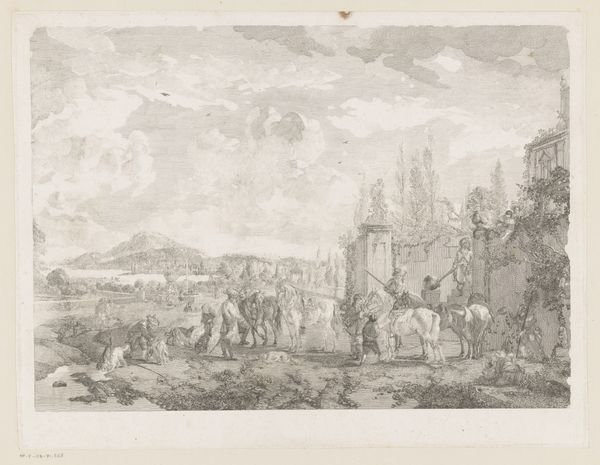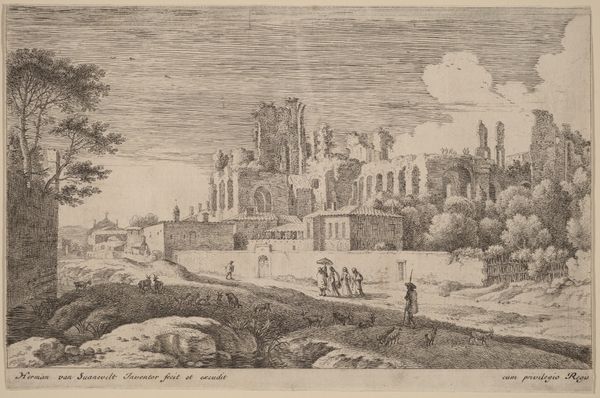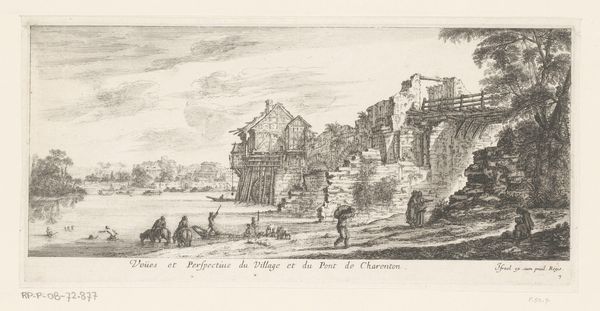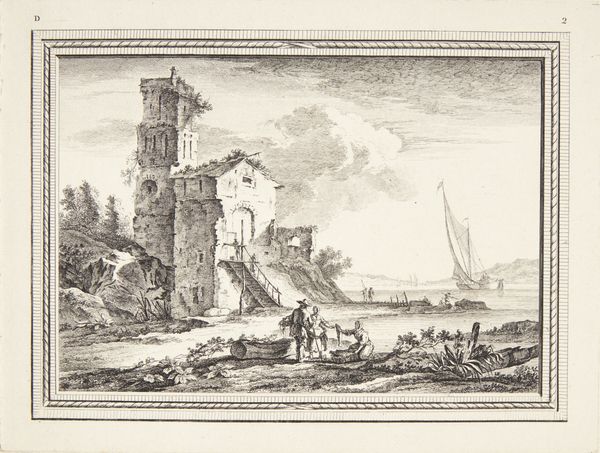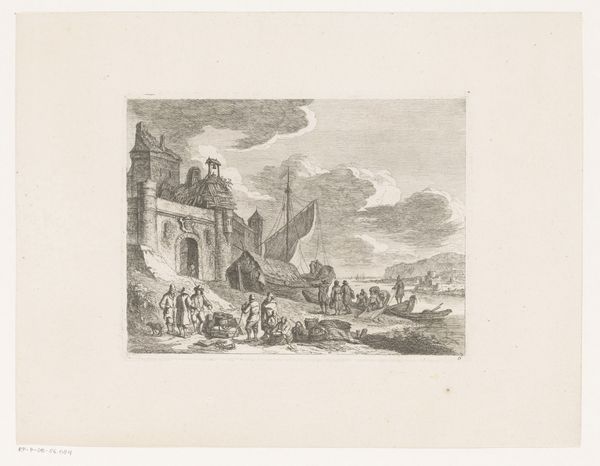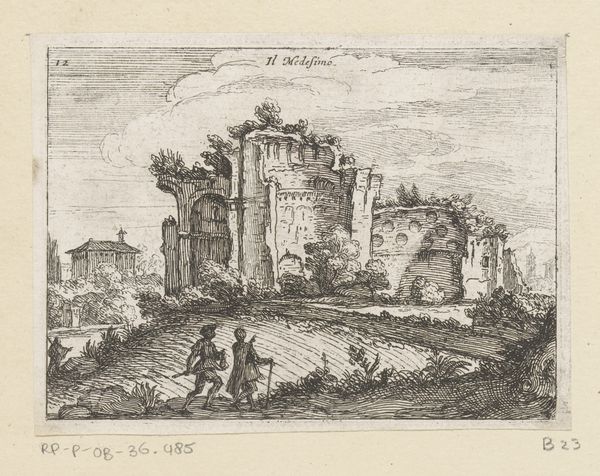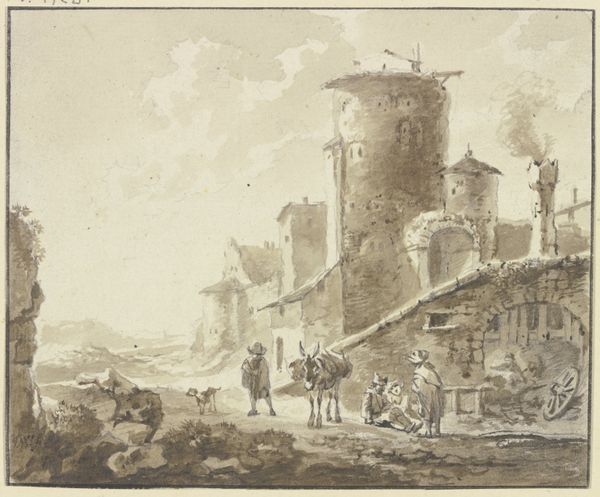
print, engraving
#
baroque
# print
#
landscape
#
engraving
Dimensions: 200 mm (height) x 309 mm (width) (plademaal)
Erasmus Sigismund Resch created this etching, Ponte Milvio, in 1794 using a metal plate, acid, and ink. The printmaking process is significant here. Lines were incised into the plate, which was then inked and pressed onto paper. This allowed for the image to be reproduced multiple times and distributed widely. Notice how the precise lines create a sense of depth and texture. The artist used hatching and cross-hatching techniques to build up shadows and volume, capturing the bridge's architectural details, and to create a sense of atmosphere. This print wasn't just a piece of art; it was also a commodity. The printmaking industry played a role in disseminating images and ideas during the 18th century, reflecting the growing commercialization of art. By understanding its making, we can fully appreciate the artistry and historical context of this print, challenging the boundaries between fine art and craft.
Comments
No comments
Be the first to comment and join the conversation on the ultimate creative platform.
